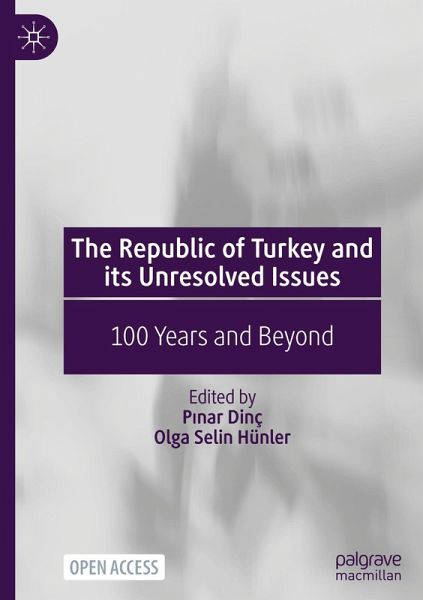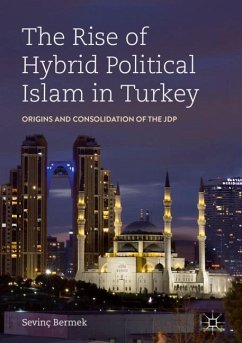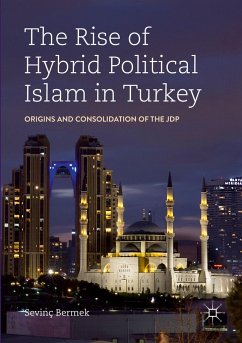
The Republic of Turkey and its Unresolved Issues
100 Years and Beyond
Herausgegeben: Dinç, Pinar; Hünler, Olga Selin
Versandkostenfrei!
Versandfertig in 6-10 Tagen
38,99 €
inkl. MwSt.

PAYBACK Punkte
19 °P sammeln!
This open access book explores the Republic of Turkey's unresolved issues that have persisted over the past 101 years. It adopts an interdisciplinary perspective to explore the challenges facing the country to critically analyse the broader historical, political, economic, social and psychological dimensions that intersect with these challenges. It offers a rich and nuanced understanding of Turkey's complex history and contemporary issues, covering topics that have often been undermined or silenced, including but not limited to the Armenian and Dersim genocides, xeno-racism, feminist approache...
This open access book explores the Republic of Turkey's unresolved issues that have persisted over the past 101 years. It adopts an interdisciplinary perspective to explore the challenges facing the country to critically analyse the broader historical, political, economic, social and psychological dimensions that intersect with these challenges. It offers a rich and nuanced understanding of Turkey's complex history and contemporary issues, covering topics that have often been undermined or silenced, including but not limited to the Armenian and Dersim genocides, xeno-racism, feminist approaches to sexual morality, queer resistances, environmental movements, and the right to the city.














